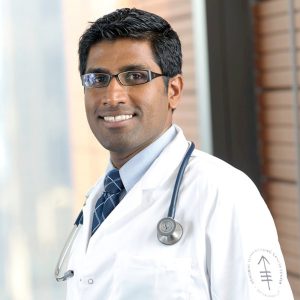ABU DHABI / GULF TIME
As the world marks Sarcoma Awareness Month this July, leading cancer experts are shining a spotlight on a rare and aggressive cancer that disproportionately affects children, adolescents, and young adults — and reminding families across the UAE and the wider Gulf of the power of early detection and the promise of new technologies.
Dr. Mrinal M. Gounder, Sarcoma Medical Oncologist and Early Drug Development Specialist at New York’s renowned Memorial Sloan Kettering Cancer Center (MSK), knows better than most how complex this disease can be. “Sarcomas, including soft tissue and bone sarcomas, are relatively rare compared to other cancers. However, the Middle East is seeing a broader epidemiological shift with rising cancer rates. While sarcomas aren’t among the most common cancers here, they still contribute to the overall cancer burden. Unlike common cancers, sarcomas are not related to lifestyle and occur in any age group including children, adolescents and young adults,” says Dr. Gounder.
One of the biggest challenges for sarcoma patients in the Middle East is early detection.
Since these cancers are rare and symptoms like a painless lump, are easy to overlook, they are often diagnosed late. Another hurdle is access to specialized care. Sarcomas are complex with more than 80 different subtypes, and accurate diagnosis often requires molecular testing and expert pathology review. As a result, patients often face delays in diagnosis and treatment, which can impact outcomes significantly.
Yet while sarcoma poses challenges, it is also at the forefront of a technological revolution in oncology. At MSK, Dr. Gounder and his team are harnessing the power of big data and artificial intelligence (AI) to transform how these cancers are detected, studied, and treated. Within MSK’s Halvorsen Center for Computational Oncology, data scientists and clinicians are working together to unlock insights hidden in vast troves of patient data.
“One of the most exciting breakthroughs is MSK’s development of a first-of-its-kind multimodal AI model that combines 3D MRI images with clinical data to predict outcomes like overall survival and risk of metastasis more accurately than traditional methods,” says Dr. Gounder. “This means that doctors can make faster, more personalized treatment decisions, which is a game-changer for a rare and complex cancer like sarcoma.”
For patients in the Gulf, this means earlier access to promising new treatments through cross-border collaborations and remote trial eligibility assessments. MSK frequently works with international patients to determine whether they qualify for ongoing clinical trials and can support them in accessing cutting-edge therapies not yet available in their home countries. This is especially critical for cancers like sarcoma, which require specialized expertise and innovative approaches that may not yet be widespread in the region.
“With AI tools, our experts can analyse scans and health records remotely, giving families the same advanced insights without needing to travel immediately,” says Dr. Gounder.
Behind every breakthrough is MSK’s global, multidisciplinary approach. Dedicated teams of sarcoma surgeons, oncologists, radiologists, and pathologists work together, guided by AI and big data, to tailor care to each patient’s unique tumor profile. For patients travelling from the Middle East — or connecting remotely — this means comprehensive care that blends world-class expertise with personalized, data-driven precision.
Dr. Gounder’s message for families this Sarcoma Awareness Month is simple but urgent: don’t ignore unusual lumps or persistent pain. “Sarcoma is rare, but early diagnosis can change everything,” he says. “If caught early and treated by specialists with the right tools, the chances of success are far higher. At MSK, we believe that combining expert care with the latest technologies like AI is the path forward — offering patients not just treatment, but real hope for the future.”
 The Gulf Time Newspaper One of the finest business newspapers in the UAE brought to you by our professional writers and editors.
The Gulf Time Newspaper One of the finest business newspapers in the UAE brought to you by our professional writers and editors.
